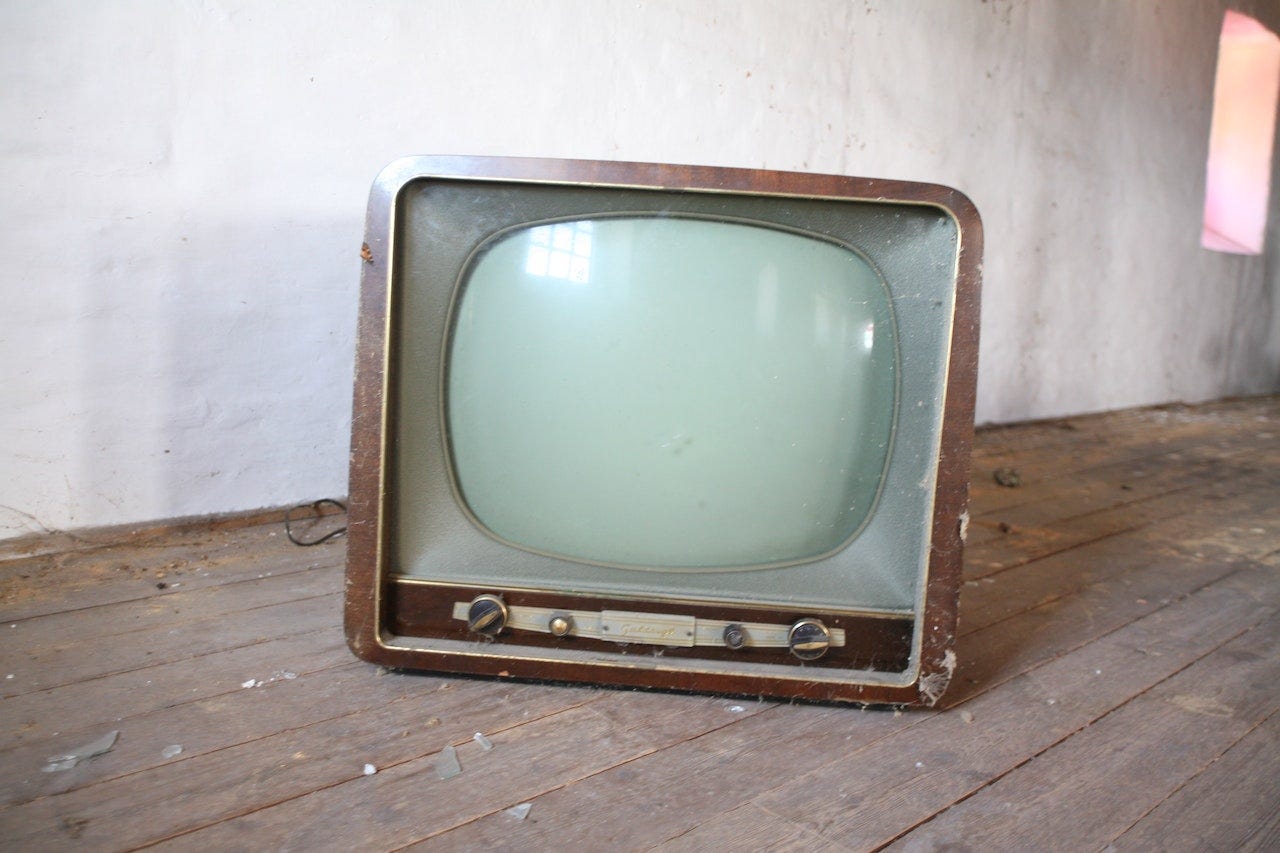No Internet
plus a Nick Cave exhibition, Tobias Carroll on NYC novels, Alexander Chee's 100 things about writing a novel, the surge in all-female Mariachi bands, and much more
I’m writing this using my upstairs neighbor’s internet connection (thanks, Taylour). Yesterday was a day off, my agenda was full and I was excited to whittle down my to-do list.
My days off from the bookstore are usually filled with errands, work on Largehearted Boy, catching up on new books & music, and writing. Often two of these activities overlap: I am writing while doing laundry, working on the website while listening to new music, cooking while streaming a literary podcast. So much of this has an online element. Around 10 a.m., my internet connection started dropping out every half hour or so, staying off long enough for me to jump through Verizon’s tech support hoops to get to a real person. Then the service would return, as would I to my work.
Around noon the internet stopped. I still had an author playlist to post and a full inbox to deal with. Routines make me happy, this made me anxious. In the past, I would take my dog for a long walk and hope the connectivity issues were resolved when we returned. Since Lily passed, I take those walks myself, in this case with a bag of laundry to the pinball laundromat bar down the street. The internet was still down when I returned, so I put my phone on speaker, opened a book, and waded through tech support yet again. The outage in my area will supposedly be fixed this weekend.
Without an online connection, I was lost for a bit. My first thoughts were to stream music, turn on lights with a smart speaker, research something on Google. Digital technology has often relegated my vinyl & turntable, dictionaries, and even light switches to the recesses of my consciousness.
Returning to the laundromat to move clothes into the dryer, I decided to embrace the Luddite life by reading Elizabeth Gonzales James’ essay Five Conversations About Peter Sellers, a brilliant piece about identity through the lens of Peter Sellers’ life (specifically his catastrophic involvement in the film Casino Royale). I sipped a hot chocolate at a coffeeshop nearby, savored the book, and immersed myself in the pop soundtrack that enveloped me. I decided to embrace the offline world and make the best of the situation.
Then our neighbor offered to share her WiFi with us until ours was fixed…
Largehearted Likes
This HBO series, adapted from the videogame of the same name, offers a mushroom-tinged take on the zombie genre and has impressed with its handful of episodes so far.
Margaret Eby on chefs’ allegiance to gas stoves at EXP
If environmentalists truly want to phase out gas, they’ll need to win over the chefs. And that’s often more complicated than convincing home cooks — particularly when a chef’s cultural heritage includes a cuisine built on cooking with gas-powered flame.
BOMB’s interview with paper artist Melissa Potter
…I love the term feminist eco-critical social practice! I aspire to it. A former student and artist named Jabari Jones introduced me to Silvia Federici. Federici coined the phrase “invisible labor” in response to women’s unpaid and undervalued work. According to Federici’s Marxist theory, capitalism depends on this labor to produce and prepare workers. Her brilliant writing—Caliban and the Witch is my favorite—helped refine my belief that all work is collaborative, and as artists we choose what to reveal and conceal.
Sophie Be Hawkin’
Ever since we moved in last year, an adult Cooper’s hawk has often graced our backyard. She now has a name (courtesy of my brilliant, witty partner).
Tobias Carroll’s reviews of three recently published NYC novels
An AI-driven news feed? Sounds creepy, but Artifact surprisingly usable and intuitive to your tastes.
Bierstacheln is a German process of inserting a heated metal rod (a bierstachel) into a beer to caramelize the sugars and create a foamy head. So good.
Ivana Rihter’s ode to Kraft Macaroni & Cheese
The first bite was bliss. I usually started eating so fast that I had to pause while all the mouthfuls I had barely chewed could make their way safely to my stomach. I’d wait for a moment while a knot of noodles shimmied down my throat, and then I’d start again, only slightly slowed by my poor motor skills. It would be far too easy to write Kraft off as soulless junk food, but how could I, with its inextricable place in my upbringing? My baba taught me to make it with the same care she taught me to make baklava. Guess which one I make more often.
Nick Cave’s Forothermore exhibit at the Guggenheim
Forothermore is a career retrospective of the musician/artist/author’s visual art.
Largehearted Links
These All-Women Mariachi Bands Are Rebelling Against Tradition
Across the country, the once anomaly of all-women mariachi bands are becoming more popular — but this doesn’t make their presence any less impactful or important. Historically, the musical genre with roots in 19th century Mexico has been led by all-men bands who perform songs from a male’s perspective, including classics like “El Rey,” a tale of male fragility and self-importance. When the all-women groups perform some of the traditional hits, many of them positioning women in less-than-complimentary ways, they add “a comedic effect” that mocks or pushes back on the genre’s renowned sexism.
Regret, the poet Sun Yung Shin told me once, means to weep again. My first thought, when she said this: That’s what it is to tell a story. To weep once is just to weep. To weep again is to put your tears in time. Without storytelling, we would only ever weep over something once; then we would either stop weeping about it forever or never stop weeping about it. Regret requires that time be both discrete and multiple. From one time, you revisit another.
Alexander Chee’s 100 things about writing a novel
10. The novel is the most precise analogy the writer can make to what was seen in the rooms and trains and skies and summer nights and parties where the novel was written, as the writer walked in moments with the enormous imaginary friend before returning to the others, which is to say, the writer’s life.
Aidan Cottrell-Boyce on Carmela Sprano at Granta
There are many books and films and plays about existentialist housewives. Hedda Gabler, Emma Bovary, Thelma Dickinson, April Wheeler from Revolutionary Road. Trapped by duty to something rotten these characters are usually on a highway to hell: driven to nihilistic excess and self-destruction. In The Sopranos, Tony Sopranos’ wife – Carmela – is just such a character. She squirms and wriggles in a cocoon of material comfort, aware that this comfort has come through the illest of means.
Kevin Dettmar’s profile of Blondie at The Atlantic
…if you were to drill down through the decade and pull up a core sample of ’70s pop, it would come up Blondie—and would look, in fact, very much like the band’s eight-disc box set, Against the Odds: 1974–1982, which is nominated for the Best Historical Album Award at this weekend’s Grammys. As the academic and artist Kembrew McLeod has written, Blondie was a mediator between the experimental music and art scene of downtown New York City and the larger pop audience. But more fundamentally, I’d argue, the group was also a conduit and popularizer of a wide variety of new rock and pop sounds.
Delia Cai’s interview with Vogue about her debut novel
The dream scenario, I think, is for this book to be read when you’re going home to your hometown or to visit your parents. Because I think something happens chemically that just makes you into a frustrated 17-year-old again when you’re in your parents’ house and you’re like, What’s happening to me? I’m an adult with my life together. I think that’s the ideal pairing.
New music from trombonist Kalia Vandever
Last Week’s LHB Feature Posts
Angela Woodward's Playlist for Her Novel "Ink"
Annalee Newitz's Playlist for Their Novel "The Terraformers"
David Nutt's Playlist for His Story Collection "Summertime in the Emergency Room"
David James Keaton's Playlist for His Novel "Head Cleaner"
Gabrielle Bates's Playlist for Her Poetry Collection "Judas Goat"
Jonathan Carroll's Playlist for His Novel "Mr. Breakfast"
Kerri Schlottman's Playlist for Her Novel "Tell Me One Thing"
Kevin Maloney's Playlist for His Novel "The Red-Headed Pilgrim"
Stephanie Burt's Playlist for Her Poetry Collection "We Are Mermaids"




